“All of my writings address human desires and aspirations with a reverence for facts and principles.”
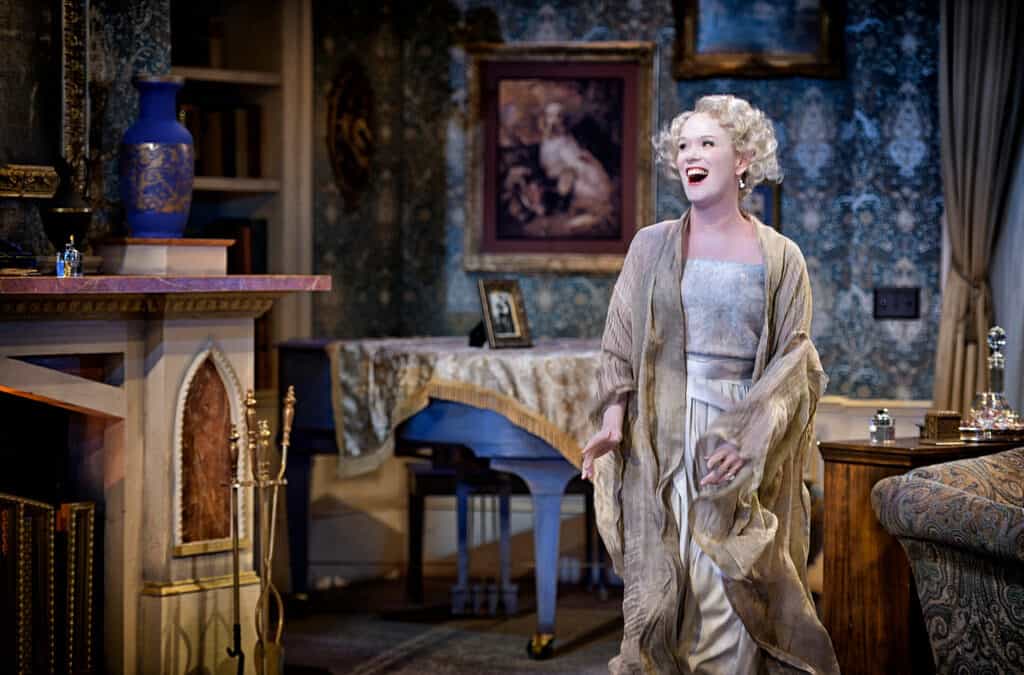
Funny But Not Quite Nailing It: BLITHE SPIRIT at Everyman
There is a kind of magic which will exorcise the problems of Blithe Spirit, and let us not notice them. This production cruises and coasts on the farcical elements and the bickering and Mme. Arcati’s eccentricities, and in so doing it certainly keeps the audience laughing. But it does not dispel the sour taste engendered by Coward’s acerbic view of genteel British marriage lingering at the end.
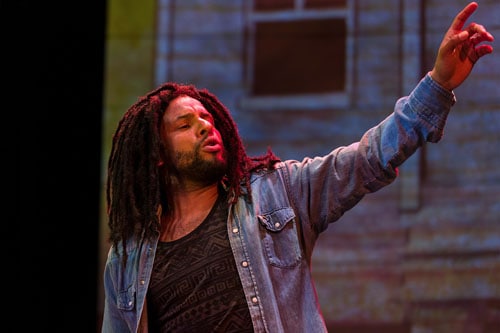
Marley: A Rare and Topical Event
Even though the historical Marley was probably mainly thinking about apartheid when he sang these words, you could not possibly sing them on a Baltimore stage these days without making the audience think of events closer to home. Bob Marley, very self-consciously a prophet, sang for his moment, but he sang as well for the ages, which includes our own. Center Stage could not have bought Bob Marley’s topicality, but it could earn it, and did. One could believe it really was Marley up there, singing right to us.

Solemn and Unusual: 1776 at Toby’s
There are times it’s hard to credit that 1776 is even a musical. In this retelling of the drafting and signing of the Declaration of Independence, there is some singing and some dancing, and even some laughs, but little effort to follow the tried-and-true path to rousing musical success. This is fundamentally a tale of a group of men sitting in a room debating, and Peter Stone, author of the book, gives us – a group of men sitting in a room debating. And yet the work has considerable power and appeal, and it is not strange either that it won the Tony for Best Musical in 1969, or that Toby’s has revived it.
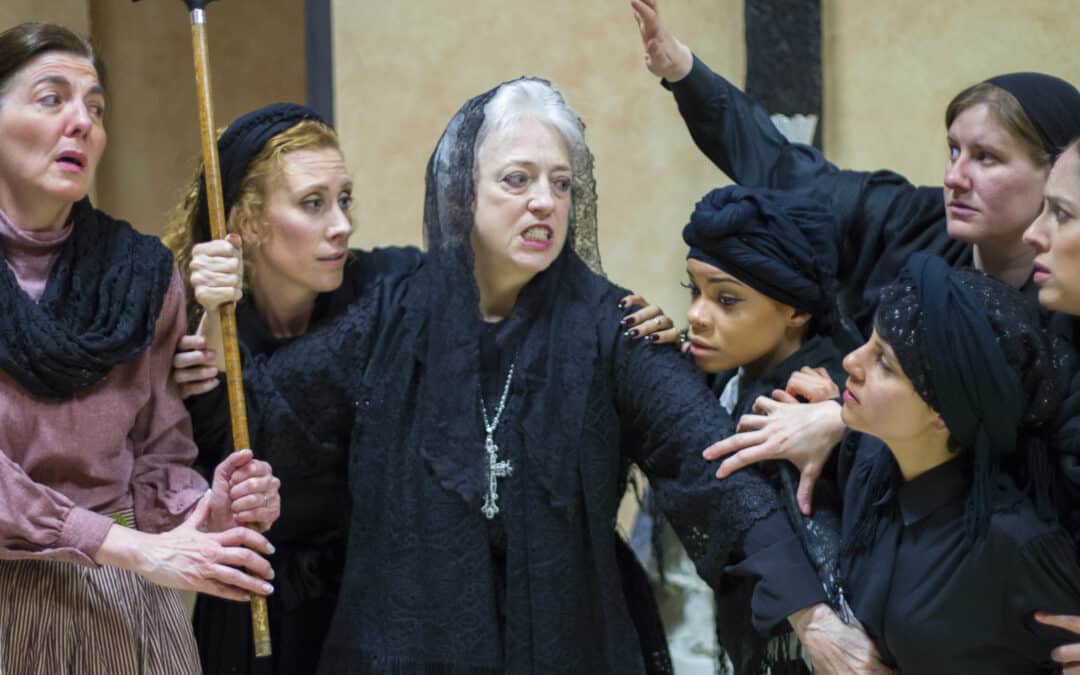
Cruella in a Mantilla?: Bernarda Alba at FPCT Needs Some Rethinking
In the end, Lorca’s rebellion against an ethos which says no to so much human feeling and sexual passion, which gives such veto power to unthinking conventionality and religious diktat, states a timeless theme. That does not mean that every aspect of Lorca’s articulation of that rebelliousness is equally timeless He may have had one foot in Brechtian agitprop, according to the conventions of which Bernarda could be a two-dimensional villain, Cruella de Vil in a mantilla. That dated kind of oversimplification is the most important thing a modern production must rescue Lorca and the play from. Bernarda too is a victim, whether Lorca fully understood it or not himself.
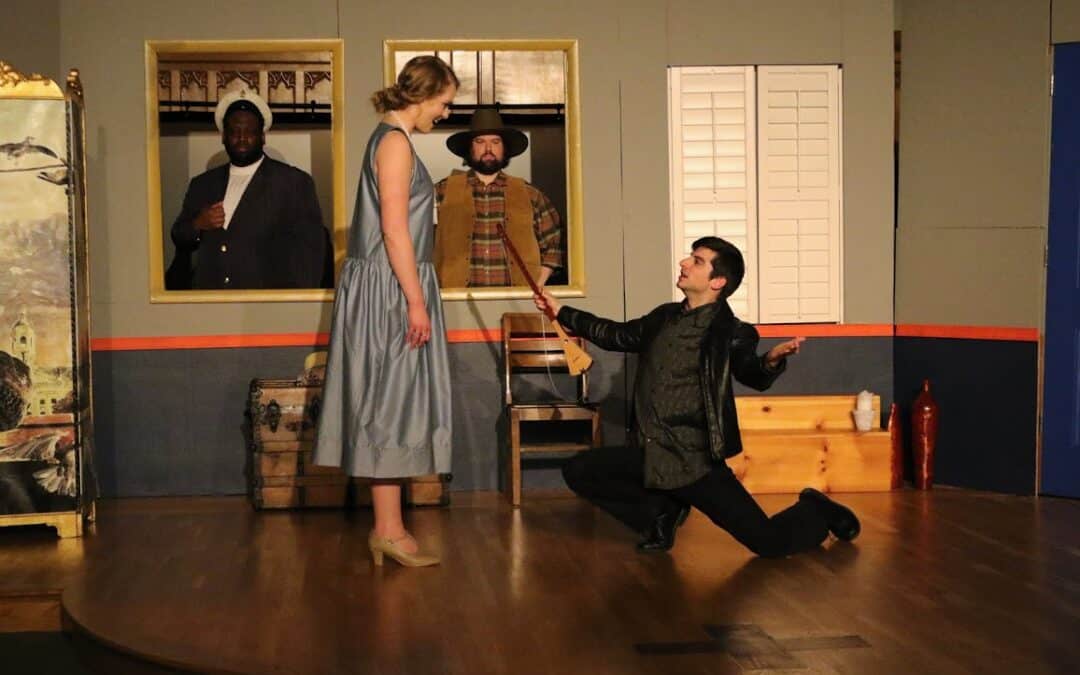
Playing Marital and Mortal Odds: 13 DEAD HUSBANDS at Cohesion
If charming and silly are your thing, you’ll have fun at Thirteen Dead Husbands by Tom Horan. Set in ‘a Paris of the Imagination,’ it centers around Dee-Dee (Cassandra Dutt) the ‘most beautiful girl in the world,’ whose stunning looks come with a serious drawback. The drawback: You marry her, you die promptly of some kind of unpredictable catastrophe. When the action starts, she has already been widowed twelve times, and has a trunk-full of wedding dresses to prove it. The question then becomes what kind of man would now seek Dee-Dee’s hand, and what are his chances (of matrimony, and if so, of survival) if he does?
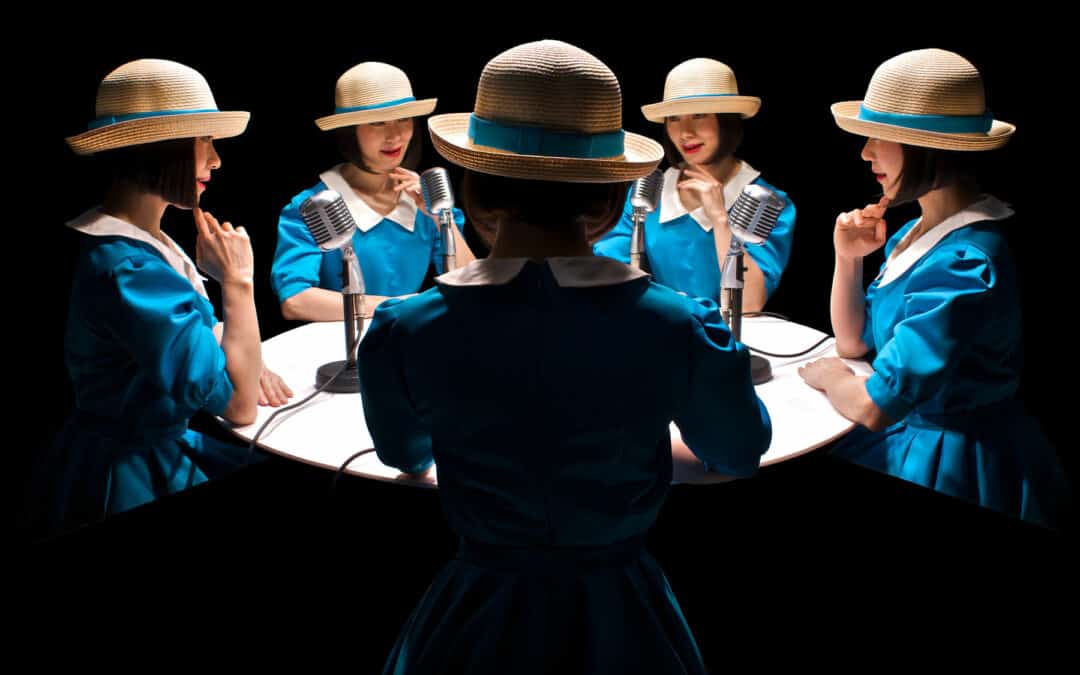
She’s Not There: ZERO HOUR: TOKYO ROSE’S LAST TAPE Alights at Towson
As we hear the voice of the “real” Tokyo Rose, it does seems that her sometimes guttural, sometimes screechy, sometimes seductive tone emanates from the Japanese national spirit and no mere individual. Yanagi is almost certainly right that the authorities convicted the wrong Tokyo Rose, but the main point isn’t that, but rather that the spirit of Tokyo Rose was ethereal, ephemeral, and not subject to being captured, either by soldiers or even by memory. Except for recordings of her voice, she is absent.
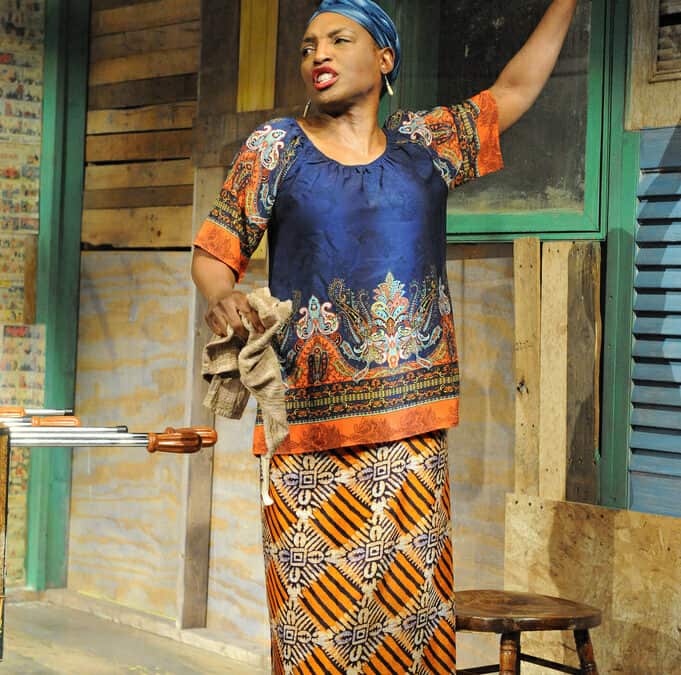
Women’s Fate in War: RUINED at Everyman
There is much more to Ruined than Mama’s turn as a sort of Auntie Mame-of-the-Ituri-rainforest. It is also the unflinching story of how, in the words of Salima, men wage war “on [women’s] bodies.” Rape is not simply “what soldiers do,” to quote scholar Mary Louise Roberts’ recent book on the sexual behavior of World War II GIs in Normandy; particularly in contemporary warfare it is a form of combat, aimed at destroying societies. The scene in Act Two where Salima describes what happened to her is not only uncomfortable, it is a display of raw theatrical power and a tutorial about the mechanics of social destruction in the wake of rape.
What It Takes To Build A Theater Town
And that, I think, is the not terribly secret, not terribly original explanation of Baltimore’s new “overnight” status as a theater town: it was the work of three generations at least: one to build the community theaters, one to build Center Stage, and one to build almost everything else upon that foundation. And if you were sleeping like Rip Van Winkle, you might have missed it.
Strange Places
Some plays are born strange, some achieve strangeness, and some have strangeness thrust upon them (or upon their characters, at least). We consider one of each type herein.
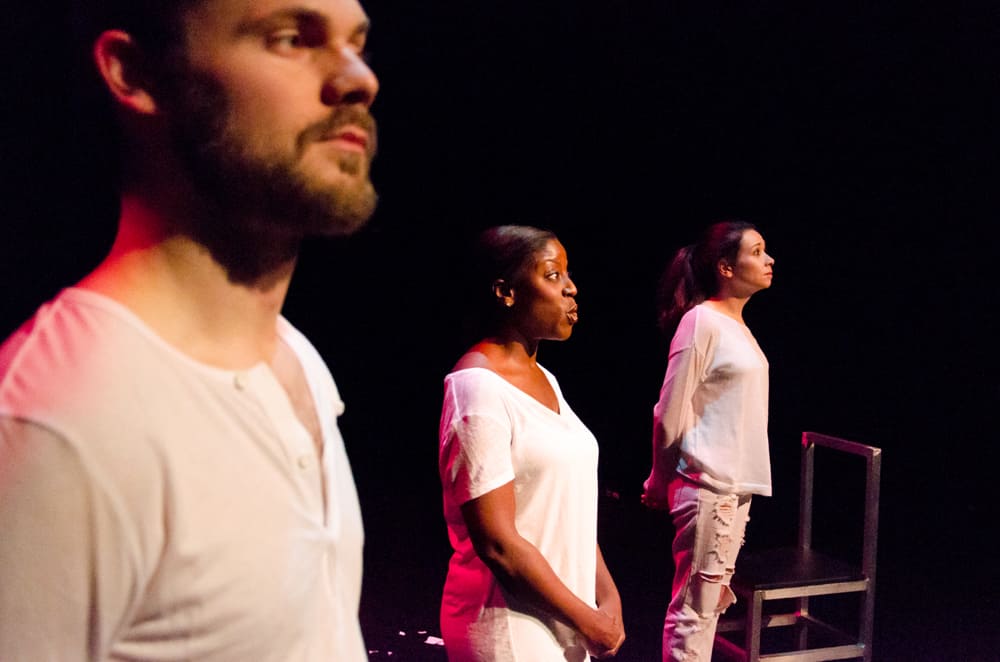
Sarah Kane’s Dazzling Apologia Pro Morte Sua, 4.48 PSYCHOSIS, at Iron Crow
The answer to critic Michael Billington’s question how you award aesthetic points to a 75-minute suicide note is, you award aesthetic points to a suicide note the same way you award aesthetic points to anything else: Is it well-written, does it show you something new, does it move you? The answers to these follow-up questions, with this piece (which is admittedly impossible not to view as a suicide note) are yes, yes, and yes.

 I lived in London and Vienna before coming to the United States, and grew up mainly in Ann Arbor. I was writing plays and stories as early as grade school. My undergraduate years at the University of Pennsylvania, where I first reviewed theater, for the college paper, were succeeded by graduate study at the Johns Hopkins University, where I earned a doctorate in English Literature.
I lived in London and Vienna before coming to the United States, and grew up mainly in Ann Arbor. I was writing plays and stories as early as grade school. My undergraduate years at the University of Pennsylvania, where I first reviewed theater, for the college paper, were succeeded by graduate study at the Johns Hopkins University, where I earned a doctorate in English Literature.